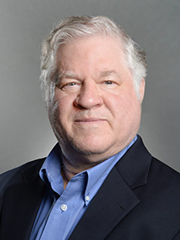Article
The group will examine working memory, which, says Cowan, is information that is temporarily held in your mind in order to help you perform different tasks.
“For example, in language comprehension, you need to remember what was just said in order to interpret what’s going to be said,” Cowan explained. “In math, you have to hold partial results in order to get the right final result. In just about everything we do, working memory is involved.”

“Working memory is a critical cognitive function,” Gratton said. “Every task we perform in real life, from sustaining a discussion to going shopping, requires that we maintain information, which needs to be stored quickly, but not necessarily maintained for a very long time.”
Paying attention to a piece of information, then, might seem key to working memory, however Cowan says that even when we’re not paying attention, we can still recollect some information.
“Cognitive psychologists often seem to find that the information is fairly stable across maybe 10 or 15 seconds at least, even without paying attention to it,” Cowan said. “But that seems discrepant with what is typically said in neuroscience, which is that the information disappears or degrades pretty quickly when there isn’t any attention to it.”
Working with Fabiani and Gratton, both professors of psychology and neuroscientists, Cowan hopes to create a shared concept of working memory that can bridge the gap between how neuroscientists and cognitive psychologists define the term.
To begin, the researchers are conducting a literature review in order to resolve the issue. Thus far, their research has indicated some cross-over information within the points of view.
“The resolution appears to be that, if you look carefully, you find that some of the cognitive behavioral results do show loss over time or decay, and some of the neuroscience results show stability over time. The question is how to match those up, that is, what are the circumstances under which information lasts or does not last?” Cowan said.
Even if someone is not paying much attention to a piece of information, there are cues that can help with recall.
“If someone asks you to remember six letters, you might find it rather difficult,” said Cowan. “But, for example, you might get six letters such as ‘FBICIA.’ Then it becomes easy because you’ve used your knowledge to form a new couple of chunks in long-term memory.”
Cowan explains that’s one method that can work and there may be others, including that your brain may flag things that it thinks it might need in the future. Or the space allocated for working memory can hold only certain information for certain periods of time, limiting what new information can be added.
“Within that space, a smaller amount of information is in the focus of attention, and the focus of attention results in a stronger, more regular, more logical memory of whatever’s in there at the same time,” Cowan said.
“Some people have talked about working memory as if it’s all of that activated information and other people have talked about it as if it’s only what’s in the focus of attention. Part of what we need to do is draw attention to the fact that we’re not all talking about the same thing—the terms are used in different ways.”
“Working memory has been extensively studied by both cognitive psychologists and by neuroscientists,” Fabiani said. “However, they do not always share the same idea of what the term means. Nelson and the two of us have set up the task of accomplishing this in order to provide a framework in which the two types of theories can be reconciled.”
The review and the definition of working memory will form some research experiments over the next few years, says Cowan, possibly at the Beckman Institute.
“The facilities at Beckman are obviously wonderful,” Cowan said. “As nice as the facilities are, the important thing about the Beckman Institute is the people.”
Beckman Institute for Advanced Science and Technology